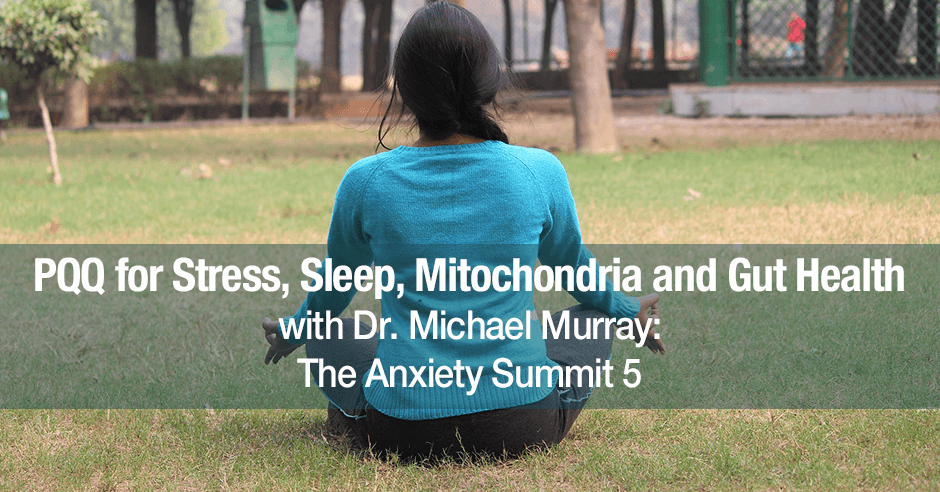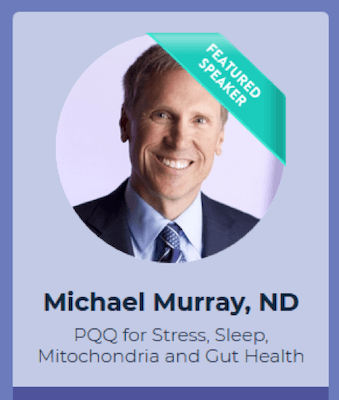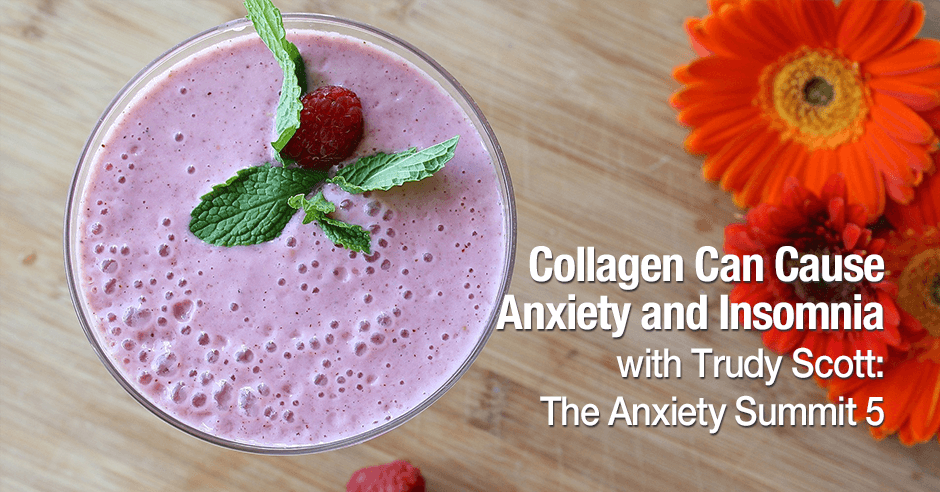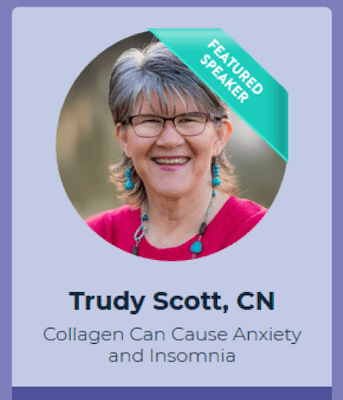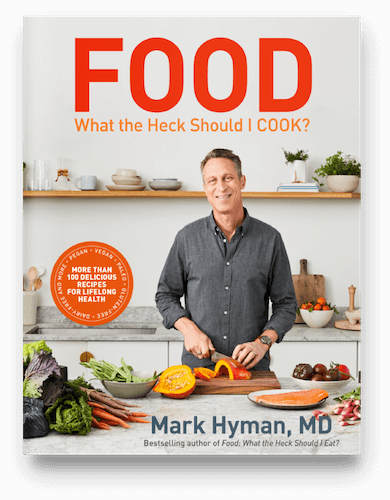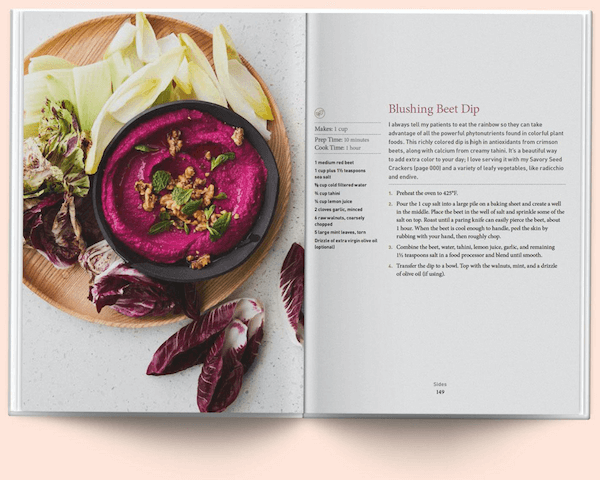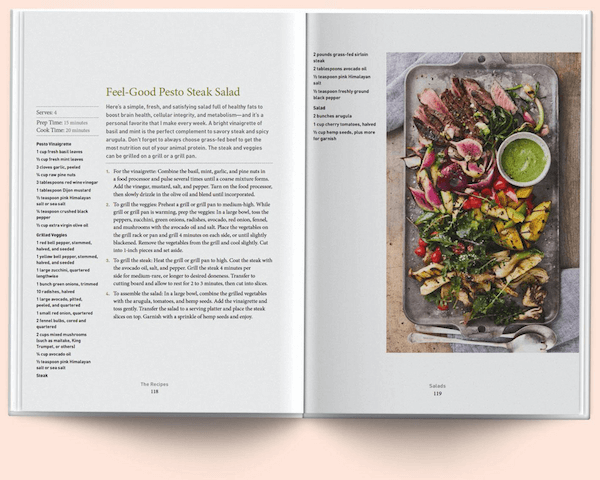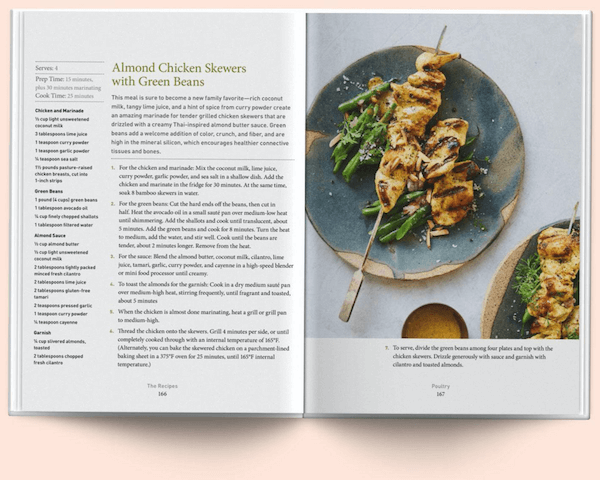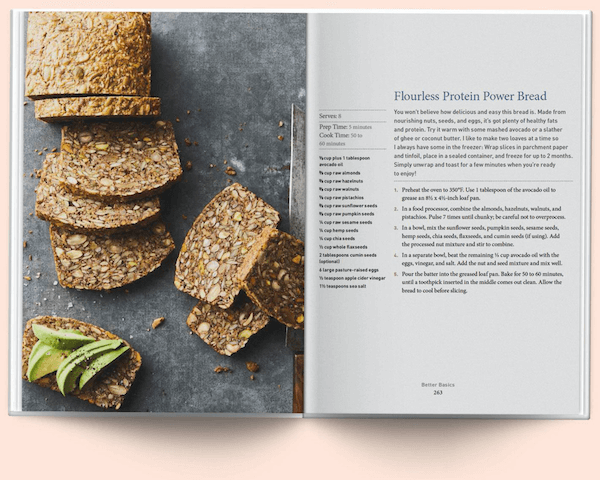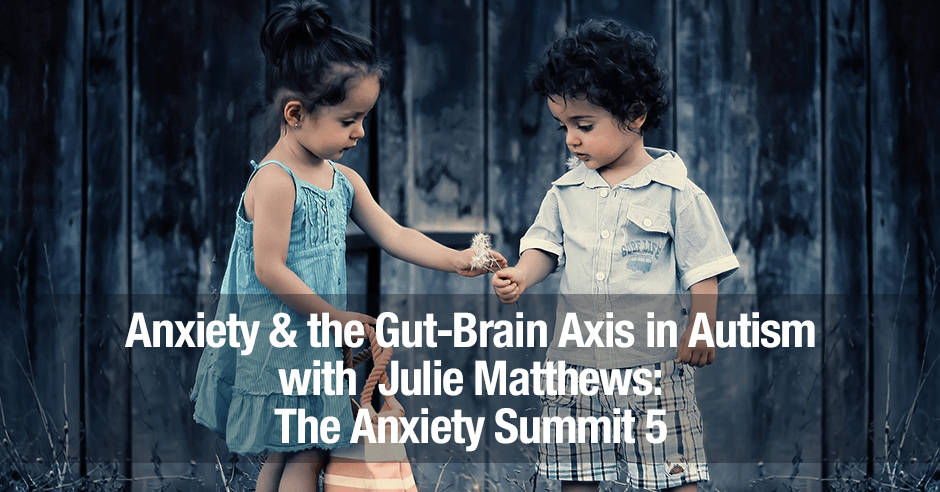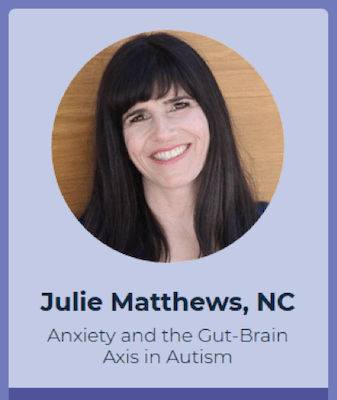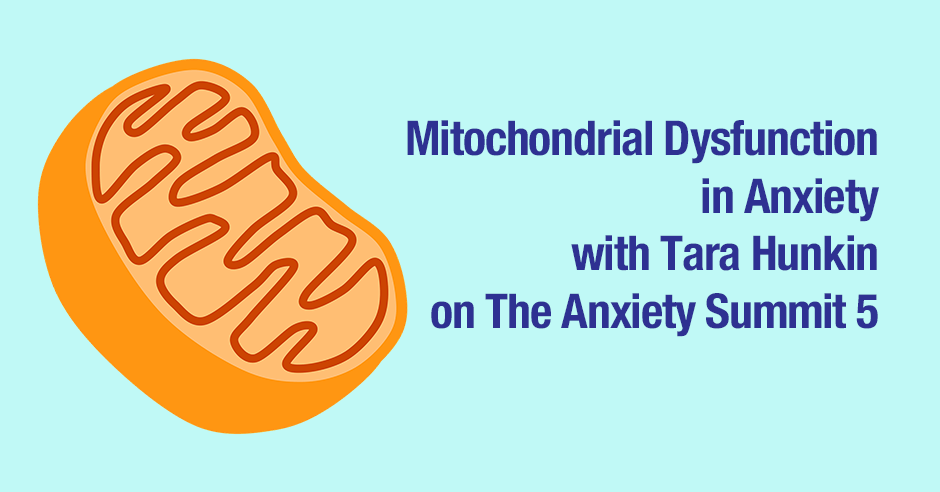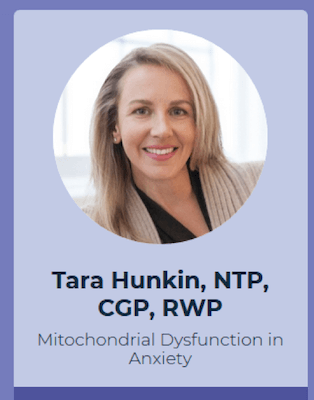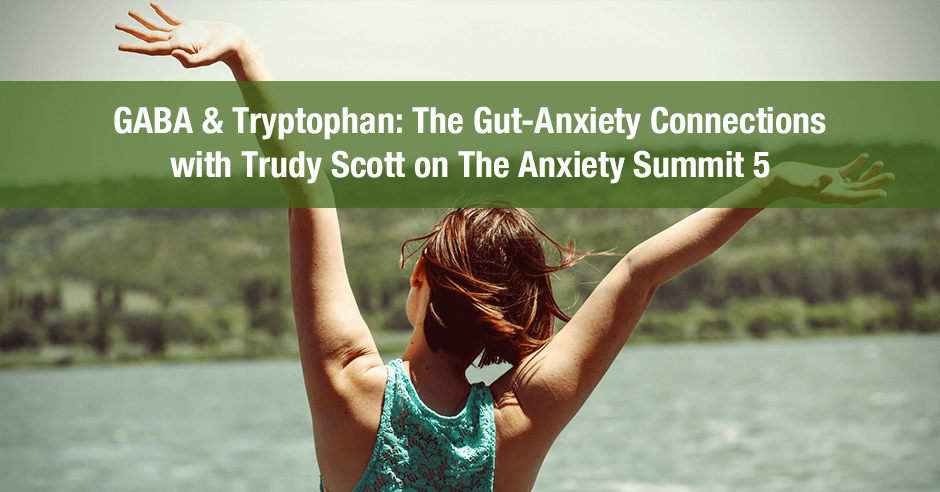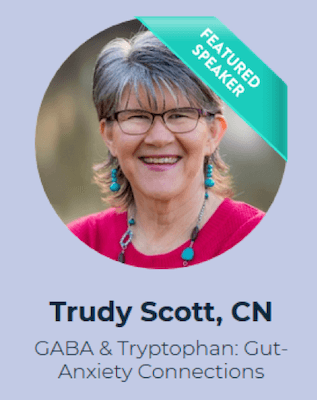Michael Murray, ND is one my guest experts on The Anxiety Summit 5: Gut-Brain Axis and our topic is: PQQ for Stress, Sleep, Mitochondria and Gut Health. What You’ll Learn –
- Pyrroloquinoline quinone (PQQ) for calm energy – what it is and how to use it
- How it is protective against every known toxin
- A study where participants report “improved happiness and fullness of social life”
Pyrroloquinoline quinone (PQQ) is a fascinating nutrient that provides calm energy, helps with sleep, is protective against every known toxin and support mitochondrial health. PQQ also supports digestive health because the liver and gut is mitochondria-dense (Tara Hunkin shares more about this in her mitochondria/anxiety interview).
When I discovered that Dr. Michael Murray, ND is an expert on PQQ I reached out to invite him to speak on the summit. I was not disappointed – our interview is fabulous, meaty and exciting.
(We actually ended up doing it twice because of technical issues with the first one. There are always plenty of “fun and games” when hosting a summit!)
Dr. Murray shares some of the many benefits of this vitamin-like compound that is found in kiwi fruit, leafy green vegetables, papaya and other fruits and vegetables:
It’s been shown to be neuroprotective, protecting brain cells, it promotes nerve growth factors, it’s been shown to be memory restorative in animal and human studies. It has some interesting effects on anxiety and improving sleep quality. And it exerts many synergistic effects with Coenzyme Q10 and some of the other nutritional compounds that influence the mitochondria.
He feels that “eventually, PQQ is going to be recognized as essential for human nutrition.” And in case you’re curious about the pronunciation, this is how you say it: pyrro-lo-quin-o-line quinone.
We discuss this paper: “Effects of Oral Supplementation with Pyrroloquinoline Quinone on Stress, Fatigue, and Sleep” and Dr. Murray shares how PQQ is
really quite interesting because normally when we think of substances exerting an anti-stress or an anti-anxiety effect, we think about things that maybe calm us down and maybe even make us a little tired.
PQQ is able to promote a calming effect, an anti-stress effect, an anti-anxiety effect, but it actually enhances mental energy and physical energy.
The results in the study were pretty profound and I quote some of the findings the study authors report participants experienced (this, of course, was subjective feedback):
- Fullness of social life improved
- Happiness and fullness in the family life improved
- Fullness and satisfaction in overall daily improved
They also found improved quality of life on measures of appetite, and pain, and obsession, as well.
The authors have this conclusion about a possible mechanism: “The anti-oxidative capacity or mitochondrial biogenesis function of PQQ might be responsible for the outcomes in this study.”
Some of the other topics we discuss around PQQ:
- why taking PQQ is likely a better approach than using resveratrol
- how it compares with vitamin C in terms of being an antioxidant (this really amazes me)
- how it “been shown to protect against every known toxin on the brain”
- possible benefits for Parkinson’s disease (by preventing the formation of alpha-synuclein) and also for Alzheimer’s disease
- how “PQQ influences the microbiome in a very favorable way”
- how a single dose, used one time, dramatically reduced C-reactive protein (a marker of inflammation) in one study
- possible concerns about oxalates
- optimal dosages and when to use it with coenzyme Q10
- best products and much more
Be sure to listen to Tara Hunkin’s interview to get a solid understanding of the bidirectional connection between mitochondria and anxiety: Mitochondrial Dysfunction in Anxiety
Please join us and listen to this interview and all the others on The Anxiety Summit 5: Gut-Brain Axis.
When you register now you’ll get access to there 3 interviews right away:
- Fix the Brain to Fix the Gut – Datis Kharrazian, DHSc, DC, MS, FACN, CNS
- MTHFR, B12 Genes and Anxiety – Carolyn Ledowsky, ND
- Why Bile is the Key to Anxiety & Hormone Havoc – Ann Louise Gittleman, PhD, CNS
If you have already signed up for the summit, I hope you enjoy these interview highlights.
If you have yet to sign up, please do come and join us and learn.
If you’re considering purchasing the summit to keep for your learning library, you have a number of options that include:
- Online only or flash drive or both
- A PDF or printed transcripts of all the interviews
- The Best of Anxiety-Gut interviews from previous Anxiety Summits
- Easing Anxiety Program (GABA Quickstart) (a group program with me on how to actually use GABA for your physical anxiety, with a private Facebook group and live Q & A call)
Have you already used PQQ and found good results? Please share so we can all learn.
I’ll be reporting back more in the coming weeks and months based on my own personal findings and based on feedback from my clients and my community. I’ve already had this feedback from someone who has seen the speaker line-up:
Registered for the summit today. So excited about it. And excited to see PQQ, one of my favourite, must-have supplements, getting its own piece.
If you’d like to give feedback or ask a question, please post in the comments section at the bottom.
I’d also love to hear from you once you’ve listened in to Dr. Murray’s interview and the others.
